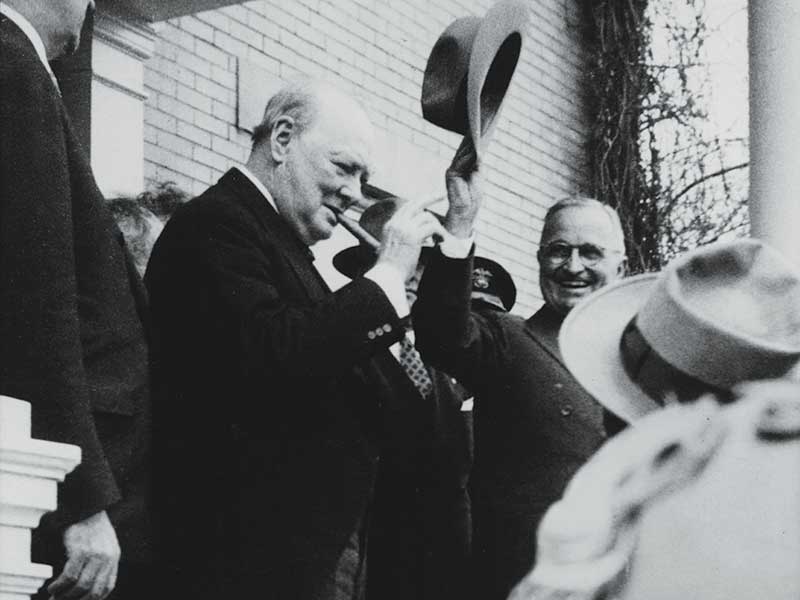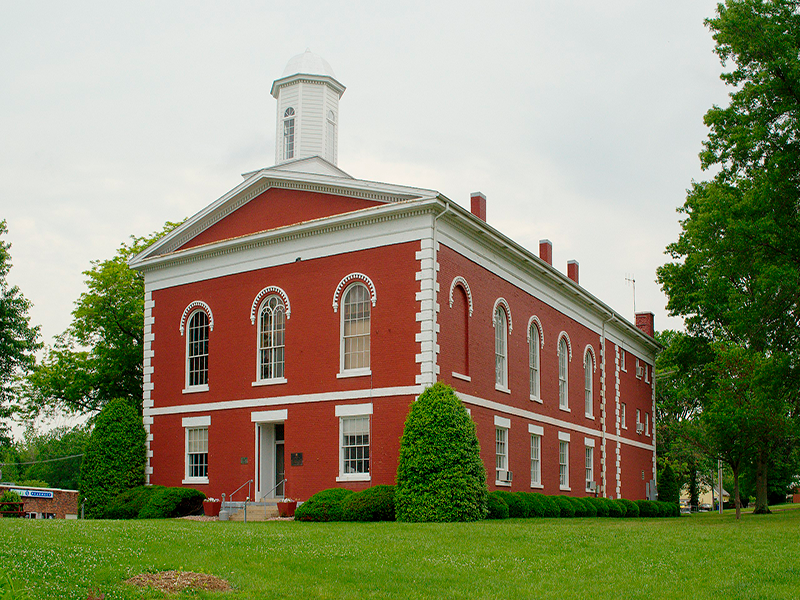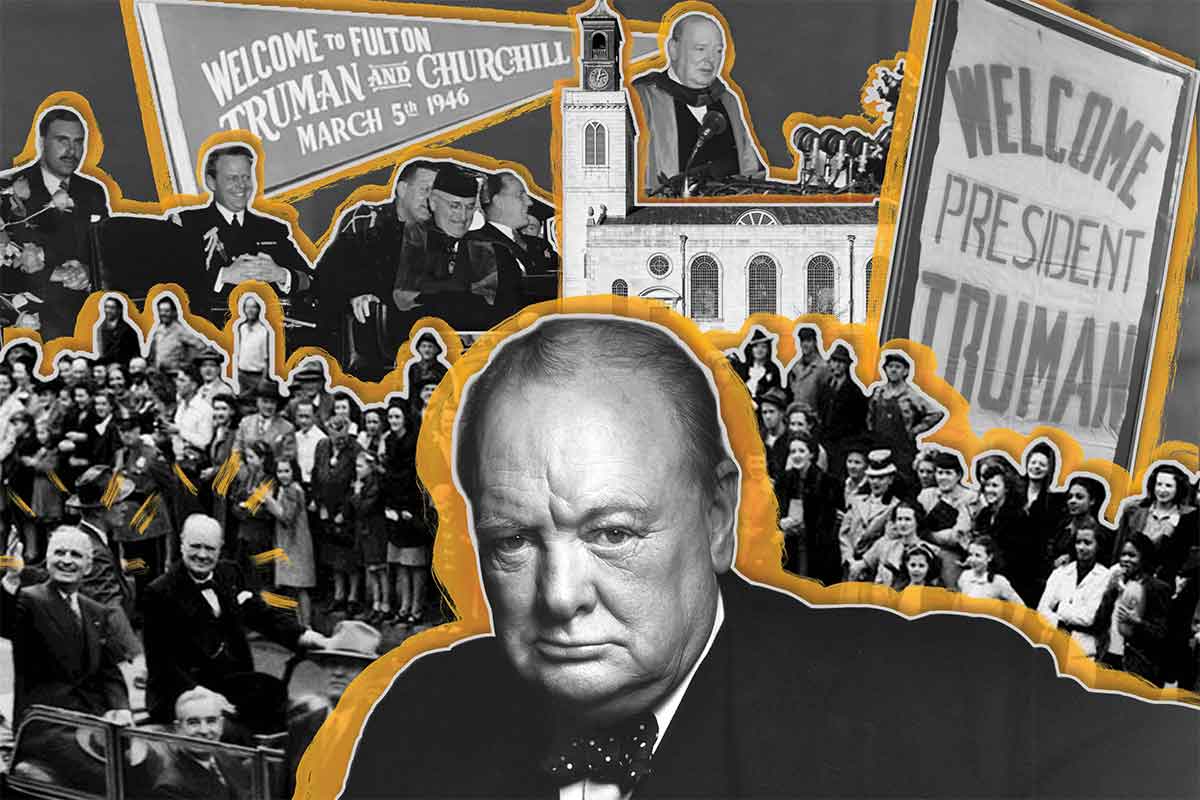Winston Churchill Delivers His Iron Curtain Speech: March 5, 1946

Winston Churchill gave his “Iron Curtain” speech at Westminster College in Fulton on this date in 1946. Churchill used the phrase “Iron Curtain” to define the division between western nations influenced by the US and UK and eastern ones in the sphere of influence of the U.S.S.R. Our 2021 article on the speech adds additional detail:
“Predictably, the audience was huge. According to The New York Times, eight thousand Fulton residents attended, while some twenty thousand others traveled distances to hear it, some from as far as St. Louis.
Good to his word, Truman made the introduction. After a brief lighthearted reference to the ‘two Westminsters,’ Churchill began his speech by reminding Americans—and their recent wartime allies—of their responsibility to provide aid to the millions of refugees in Europe and Asia whom the war had left homeless and destitute. He soon launched into the point of his speech, with a phrase that has since been quoted innumerable times: ‘From Stettin in the Baltic to Trieste in the Adriatic, an iron curtain has descended across the Continent. Behind that line lie all the capitals of the ancient states of central and eastern Europe.’ He proceeded to name them, one by one, then went on to present his chilling two-point theme: the Soviet Union must not be allowed to continue its expansion into Europe and elsewhere, and the only two countries in a position to stop Stalin were Britain and the United States.
Churchill listed all the global trouble spots in which Russia was imposing its interests, adding, ‘Nobody knows what Soviet Russia and its Communist international organization intend to do in the future, or what are the limits, if any, to their expansive and proselytizing tendencies. … We should be most unwise not to face them squarely while the time remains.’
Reaction to the speech was swift in coming and overwhelmingly negative. Not surprisingly, Russia weighed in two days later, with a furious Stalin accusing Churchill of fomenting a hawkish attitude toward the Soviet Union. And while there were those who were willing to accept Churchill’s dire predictions as an accurate portrayal of the current global political situation, there were others who viewed him as an overly dramatic alarmist. Politicians and newspaper editorials accused Churchill of unleashing panic, at best, and warmongering, at worst.”
Read the full article on Churchill’s visit and speech in Fulton here.
Related Posts
Iron County was Established
On February 17, 1857, Iron County was established. A special act by the Missouri Legislature led to the formation of Iron County, carved out of parts of Dent, Madison, Reynolds, St. Francois, Washington, and Wayne Counties.
Winston Churchill Visits Fulton
Seventy-five years ago, Winston Churchill introduced the “Iron Curtain” to Fulton and presaged the Cold War.



